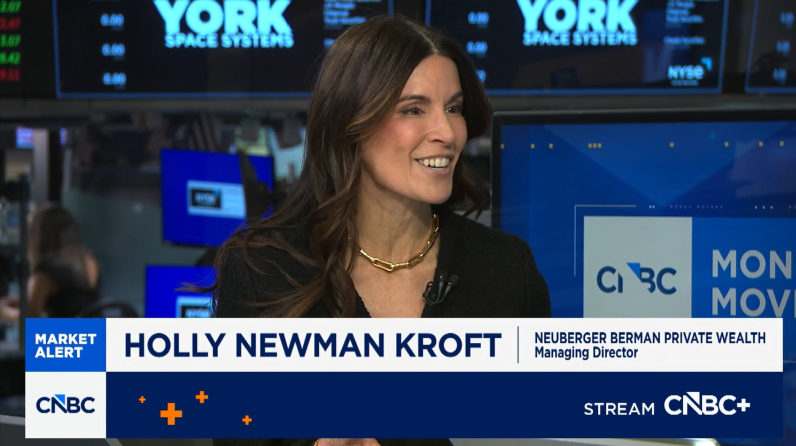

We believe the Federal Reserve (Fed) will likely move the fed funds rate lower by 25 bps in their next two meetings, remaining flexible in their approach if the labor market data begins to soften more dramatically
September’s U.S. CPI, released today, came in slightly hotter-than-expected although well within the range of expectations. U.S. headline CPI was reported up +0.2% month-over-month and up +2.4% year-over-year versus expectations of +0.1% and +2.3%, respectively, while core CPI was up +0.3% month-over-month and up +3.3% on a year-over-year basis versus expectations for +0.2% and +3.2%, respectively.
The slight upside surprise in core CPI is similar to what was reported in August, and shelter prices continued to run at a rate well above the Fed’s target. Admittedly, however, both rent and owners equivalent rent were up only +0.3% in September. To put this in context, this is the second smallest gain for owners equivalent rent for the year, perhaps reflecting (finally!) the moderation in shelter inflation that has been telegraphed by the Fed for well over a year. With shelter coming in a touch better-than-expected, the bigger surprise this month came in the form of food prices which were up +0.4%. Breaking it down, food at home was up +0.4% and food away from home was up +0.3%, month-over-month. This unwelcome uptick was offset in terms of consumer impact by another decline in energy prices as gasoline fell -4.1% in the month.
The news outside of shelter, food, and energy – notable given their non-discretionary nature – was not all that great either, as apparel, medical care, and motor vehicle insurance prices were up +1.1%, +0.4%, and +1.2% month-over-month, respectively. The continued pressure higher on prices comes at a pivotal time as U.S. voters head to the polls in a matter of weeks with their individual economic situation likely top of mind. In addition, while lower interest rates are likely to have positive implications for housing inventories and activity, the persistence in higher prices in areas such as medical care and insurance remains a risk to consumer confidence and spending.
Review of the minutes from the Fed’s last meeting indicated that voting members of the FOMC were divided in terms of the magnitude of the interest rate cut effected in September, and, outside of a surprise uptick in U.S. jobless claims reported today, recent data points toward a more patient pace for the Fed over the next several months. In addition, the October data that will be available for the Fed to assess in their November 6-7th meeting may be heavily skewed due to the port strike and back-to-back major hurricanes. As a result, data released over the next several weeks might end up being more consequential in terms of the decision. Our view is that the Fed likely moves the fed funds rate lower by 25 basis points in the next two meetings, remaining flexible in their approach if the labor market data begins to soften more dramatically.


Accolades
Forbes | SHOOK 2026 Top Women Wealth Advisors

INSIGHTS
CIO Notebook: January Jobs Prove Worth the Wait

VIDEO
Holly Newman Kroft Featured on CNBC’s Money Movers February 10th

MARKET COMMENTARY
A Rocky Rotation

VIDEO
Holly Newman Kroft Featured on CNBC’s Money Movers January 29th

INSIGHTS
Seismic Shifts That Could Drive Private Markets

INSIGHTS
Concentrated Stock Risk: Working From All Angles
INSIGHTS
Trump 2.0: Middle Innings of an Uncertain Game
INSIGHTS
Preparing Your Children for Wealth: A Life-Stage Roadmap
VIDEO
Highlighting Jenna Elson, Team Kaminsky’s Dedicated Certified Financial Planner®
INSIGHTS
CIO Notebook: Fed Stands Firm as Powell’s Successor Waits in the Wings
MUNICIPAL BASIS POINTS
Buckle Up
REPLAY
Private Wealth Investment Outlook 1Q26
IMPORTANT INFORMATION:
This material is provided for informational purposes only and nothing herein constitutes investment, legal, accounting or tax advice, or a recommendation to buy, sell or hold a security. This material is general in nature and is not directed to any category of investors and should not be regarded as individualized, a recommendation, investment advice or a suggestion to engage in or refrain from any investment-related course of action. Any views or opinions expressed may not reflect those of the firm as a whole. Neuberger Berman products and services may not be available in all jurisdictions or to all client types. Diversification does not guarantee profit or protect against loss in declining markets. Investing entails risks, including possible loss of principal. Investments in private equity are speculative and involve a higher degree of risk than more traditional investments. Investments in private equity are intended for sophisticated investors only. Unless otherwise indicated, returns shown reflect reinvestment of dividends and distributions. Indexes are unmanaged and are not available for direct investment. Investing entails risks, including possible loss of principal. Past performance is no guarantee of future results.
Portfolio positioning views expressed herein are those of Neuberger Berman’s Private Wealth Investment Group, which may include those of the Neuberger Berman’s Asset Allocation Committee. Asset allocation and positioning views are based on a hypothetical reference portfolio. The Private Wealth Investment Group analyzes market and economic indicators to develop asset allocation strategies. The Private Wealth Investment Group works in partnership with the Office of the CIO. The Private Wealth Investment Group also consults regularly with portfolio managers and investment officers across the firm. The Asset Allocation Committee is comprised of professionals across multiple disciplines, including equity and fixed income strategists and portfolio managers. The Asset Allocation Committee reviews and sets long-term asset allocation models, establishes preferred near-term tactical asset class allocations and, upon request, reviews asset allocations for large, diversified mandates. Asset Allocation Committee members are polled on asset classes and the positional views are representative of an Asset Allocation Committee consensus. The views of the Asset Allocation Committee and the Private Wealth Investment Group may not reflect the views of the firm as a whole and Neuberger Berman advisers and portfolio managers may take contrary positions to the views of the Asset Allocation Committee or the Private Wealth Investment Group. The Asset Allocation Committee and the Private Wealth Investment Group views do not constitute a prediction or projection of future events or future market behavior. Defensive positioning generally means an underweight bias on allocations to risk assets such as equities and alternatives. Positioning views may change over time without notice and actual client positioning may vary significantly. Discussion of yield characteristics or total returns of different asset classes are for illustrative purposes only. Such asset classes, such as equities and fixed income, may have significantly different overall risk-return characteristics which should be consider before investing.
The information in this material may contain projections, market outlooks or other forward-looking statements regarding future events, including economic, asset class and market outlooks or expectations, and is only current as of the date indicated. There is no assurance that such events, outlook and expectations will be achieved, and actual results may be significantly different than that shown here. The duration and characteristics of past market/economic cycles and market behavior, including any bull/bear markets, is no indication of the duration and characteristics of any current or future be market/economic cycles or behavior. Information on historical observations about asset or sub-asset classes is not intended to represent or predict future events. Historical trends do not imply, forecast or guarantee future results. Information is based on current views and market conditions, which will fluctuate and may be superseded by subsequent market events or for other reasons.
Discussions of any specific sectors and companies are for informational purposes only. This material is not intended as a formal research report and should not be relied upon as a basis for making an investment decision. The firm, its employees and advisory accounts may hold positions of any companies discussed. Nothing herein constitutes a recommendation to buy, sell or hold a security. It should not be assumed that any investments in securities, companies, sectors or markets identified and described were or will be profitable. Investment decisions and the appropriateness of this content should be made based on an investor's individual objectives and circumstances and in consultation with his or her advisors.
Neuberger Berman Investment Advisers LLC is a registered investment adviser.
The “Neuberger Berman” name and logo are registered service marks of Neuberger Berman Group LLC.